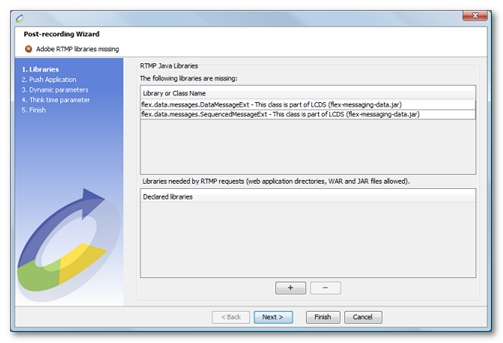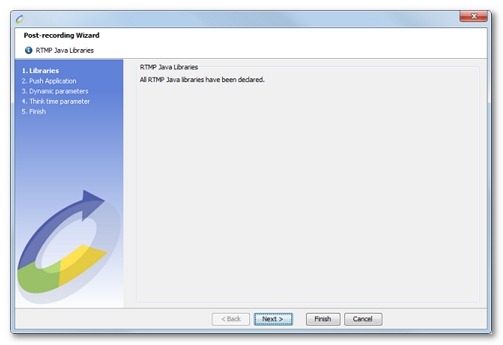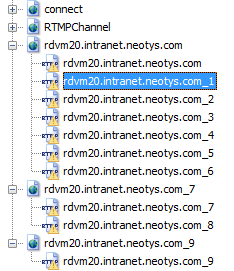Post-recording wizard
At the end of recording, the JAR declaration panel is displayed if any externalizable objects have missing Java classes:

- Externalizable objects (which extend java.io.Externalizable in Java) are objects that are responsible for saving and restoring the contents of their instances themselves.
- All the classes for the externalizable objects sent must be loaded.
- This panel only displays part of the missing classes; not all the missing classes can be resolved.
- To declare the missing Java RTMP libraries (JAR files)
- Open the file explorer by clicking the + button.
- Select an appropriate WAR file for the application, or the directory containing the deployed web application, then click Select. NeoLoad automatically retrieves the required JAR files from the selected application. You also may select the JAR files to be loaded manually in NeoLoad. Repeat the operation as many times as is necessary.
- A message confirms the declaration. If the operation fails, make sure that all the required Java RTMP libraries have been declared.
When the libraries have been successfully declared, the following screen appears:

Declaring the Java RTMP libraries at the end of recording is a compulsory step if all the requests are to be played back.
- You may declare missing Java RTMP libraries at a later stage.
- Declaring Java RTMP libraries is carried out in the project's RTMP libraries manager in the project preferences. See Adobe RTMP.
RTMP requests with missing Java RTMP libraries are identified by a warning symbol:

NeoLoad then offers to create a modified User Path. This step is necessary because the User Path cannot be executed in its present state. For more details on the modifications NeoLoad automatically proposes, see RTMP streaming.